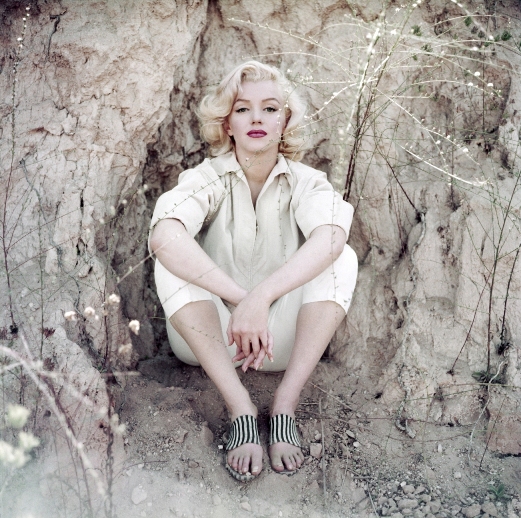Of the many things Love, Marilyn does to make life harder for itself, the first is the most damning. “More than 1000 books have been written about Marilyn Monroe,” we are informed in the first frames of the documentary, as scenes from the actress’s brief, tragic life flit across the screen. In technical terms, this is known as setting the bar way too high: expectations crystallize quickly, and the filmmaker needs come up with some good stuff to justify adding to the already immense canon concerning Hollywood’s most notorious daughter.

This good stuff, as it were, turns out to be a cache of papers – notes, journal entries, letters and scribblings – that have lain undiscovered since Ms Monroe’s death 50 years ago this August. I say undiscovered, but to be candid the better word might be un-scavenged, given their slight contribution to what we know about her life and death.
Which is not to say that Love, Marilyn is thus rendered completely redundant at the start. Director Liz Garbus, to be fair, composes a competent enough overview of Miss Monroe’s life. She takes us back to her childhood as the shy, slightly buck-toothed Norma Jean Mortenson; guides us through early Hollywood breakthroughs and Monroe’s steely determination to recast herself as a serious actress. And there in her faltering last days, alone but never left alone, adored by millions but loved by no one. Competent, true, but it must be said that the bio-doc is unaccountably patchy and uncritical at times. There is no mention, for instance, of her first marriage; likewise, the film blithely accepts a popular counter-history – plausible enough but untested – that proposes that a towering intellect was unfairly concealed by the focus on Monroe’s pulchritudinous charm.
On the other hand, one does get a clear sense of Monroe’s lonely battle against the commodification of her qualities, that Hollywood executives with one eye on the cash till so dearly craved. She was clearly ambitious, and resented being short-changed by the studio system. Taken within the correct context, her attempts to break free of the pernicious studio system was extremely admirable. It’s no surprise that the best parts of the film are the original interviews with Amy Greene, widow of Milton Greene who (aside from taking some of Monroe’s most iconic photographs) proved a useful ally when she fled Hollywood temporarily in the mid-1950s.
But the film’s biggest misstep stems directly from its most misplaced claim. It’s unfortunate that the original material around which Love, Marilyn is supposedly built is actually quite pedestrian. Perhaps recognising this, Garbus then goes on to compound her folly by commissioning some of Hollywood’s contemporary great and good to render dramatic re-interpretations of key passages. Viola Davis, Glenn Close, Gretchen Mol, Lindsay Lohan and others only serve to distract with poorly judged attempts to channel Monroe. It may very well be that Garbus procured her all-star line up as a diversionary tactic; if so, she succeeded. A bit too well though, because this unfortunate conceit diverts attention away from the good parts of the film, too.
Love, Marilyn (2012, 105 min. English with Hebrew subtitles)
Love, Marilyn will be released in Israeli theatres beginning January 17, 2013.





